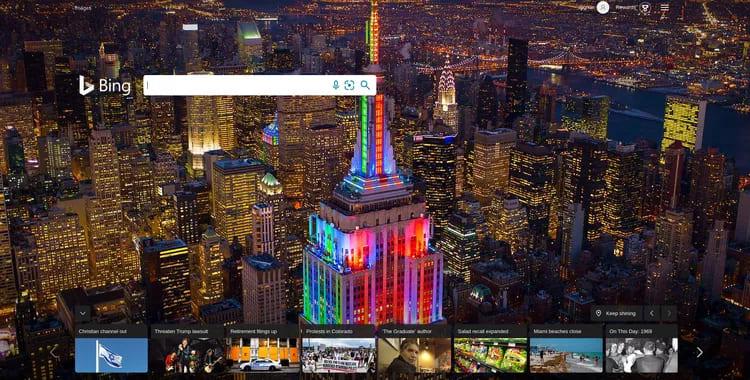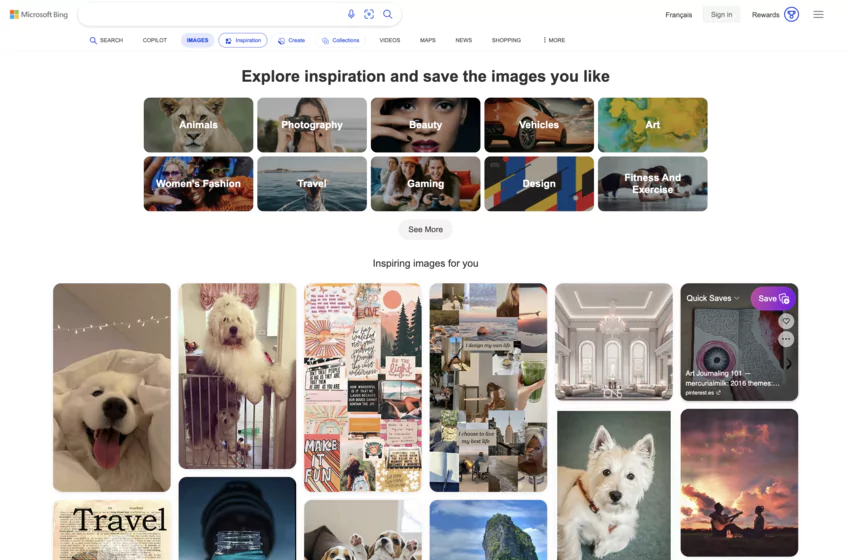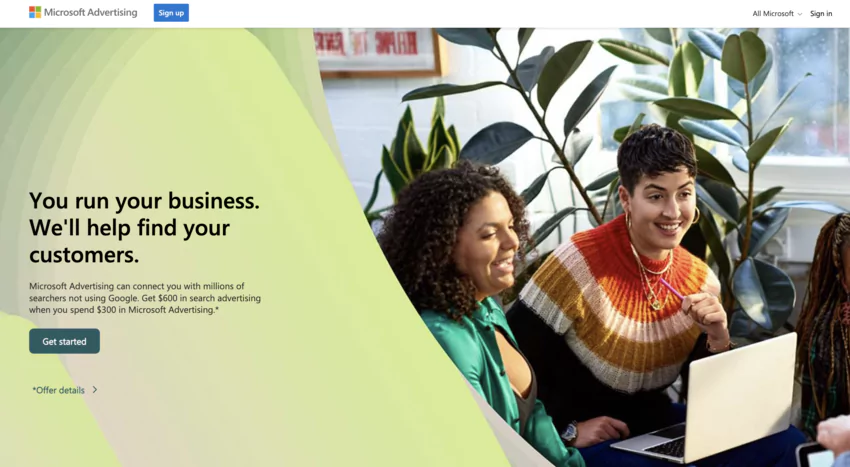Explore Bing's evolution and unique features. Compare with Google, discover innovative tools, and learn tips to enhance your online search experience.
Bing, the Microsoft search engine, has come a long way since its beginnings. Officially launched in 2009, it is the heir to a series of efforts by Microsoft in the field of online research.
Its history began in 1998 with MSN Search, which then used results from other engines. Over the years, Microsoft has developed its own technology, going through several iterations:
This development is a testament to Microsoft's determination to create a search engine competitive and innovative.
The search engine got its name after being chosen by discussion groups. Microsoft opted for this name because it recalls the sound made at the “moment of discovery and decision making.”

David Webster, an advertising strategist at Microsoft, originally proposed “bang” for the same reasons as those given for “Bing.” However, “bang” was not retained after it was realized that it could not be used correctly as a verb for Internet research. Webster noted that “I banged” had very different connotations than “I binged.”
Bing is distinguished by its versatility and accessibility. It offers much more than a simple web search:
Users can access Bing via the Bing.com website, Microsoft Edge, or the mobile app available on iOS and Android.
Bing integrates advanced technologies to improve the user experience. Artificial intelligence plays a key role in the relevance of results. In addition, Bing offers synergy with other Microsoft services, such as Office and Windows, creating a professional digital ecosystem.

Although Bing remains behind Google in terms of global market share, it maintains a significant position, especially in the United States. Its major partnership with Yahoo! in 2009 strengthened its presence, with Bing becoming the underlying search engine for Yahoo!.

Despite financial challenges, Microsoft continues to invest in Bing. Recent innovations include:
These advances show Microsoft's desire to make Bing a viable and innovative alternative in the world of search engines.

Bing stands out for its visual and practical interface. The home page displays a new background image on a daily basis showcasing a remarkable place in the world. This visual approach is accompanied by a well-thought-out organization:
The interface is dynamic: users can browse images from the previous days, each accompanied by a short description of the location represented.
[Image: Screenshot from the Bing home page showing today's image and search interface] Caption: The Bing interface combines visuals and functionality
Bing goes beyond just listing links. He complete its search results with additional useful information:
For some queries, Bing also displays informative boxes, maps, or lists of relevant businesses, making the search more informative and contextual.
Bing is not just a search engine. It incorporates several Microsoft services to offer a complete experience:
This integration creates a harmonious whole, allowing users to easily switch between services according to their needs.

The Bing Search application, available on Android and iOS, offers a responsive mobile experience with specific functions:
These mobile-specific features show Bing's attention to the needs of users on the go.
Bing continues to improve and add new features, such as the recent addition of conversational AI with Bing Chat, demonstrating its desire to remain competitive and relevant in the constant evolution of search engines.
google Dominates widely the search engine market with around 91% of shares in 2024. Bing, although second, only represents 3% to 4% of the global market. This impressive difference is due to Google's global popularity.
However, Bing is gaining ground in some markets:

Both search engines have very different design approaches.
Google opts for a minimalist interface:

Bing offers a more visually rich experience:
[Image: Screenshot side by side of the Bing and Google home pages] Caption: The visual contrast between Bing's aesthetic approach and Google's minimalism
Google is recognized for its relevant and recent results, using advanced algorithms like BERT to understand the context of requests.
Bing, on the other hand, focuses on:
This approach can give Bing an advantage for certain searches that are specific or based on current trends.
Both engines offer advanced search options, but their accessibility differs markedly.
Google makes its filters and options easily visible, allowing users to quickly refine their searches according to various criteria such as date or file type.
Bing, on the other hand, often places these options in specific submenus or tabs, making them less obvious to the average user.
Bing se Distinguishes clearly with its Microsoft Rewards program. Users can:
Google, by comparison, does not currently offer an equivalent rewards program that is directly linked to its search engine.

In this area, Bing excels particularly with advanced options for searching images, such as searching by resolution. These features can be very useful for marketing professionals and content creators.
Google, for its part, benefits from the integration of YouTube, giving it a definite advantage when it comes to finding videos.
Both engines offer voice search features, but with notable differences:
Google Assistant is well-integrated with the Android ecosystem and Google devices, providing a seamless experience.
Bing uses Cortana, which while functional, has more limited adoption.
In the field of advertising, Google Ads remains the dominant platform in the fields of advertising networks, offering a wider reach and varied advertising formats.

Microsoft Advertising (formerly Bing Ads) is positioned as an interesting alternative:
This option can be beneficial for businesses looking to maximize their return on investment in specific niches.
Google Maps is undisputed leader in this area, offering:

Bing Maps, while good for basic searches and directions, lacks some of the advanced features offered by Google.
In conclusion, while Google remains the most used with a wider range of features, Bing continues to appeal to a specific segment of users thanks to its unique advantages. The choice between the two will depend on the specific needs of each user.
Bing and Google may be the most well known search engines, but they're certainly not the only ones.
There are other great search engines on the web, such as DuckDuckGo and Dogpile, that are more than up to the task.